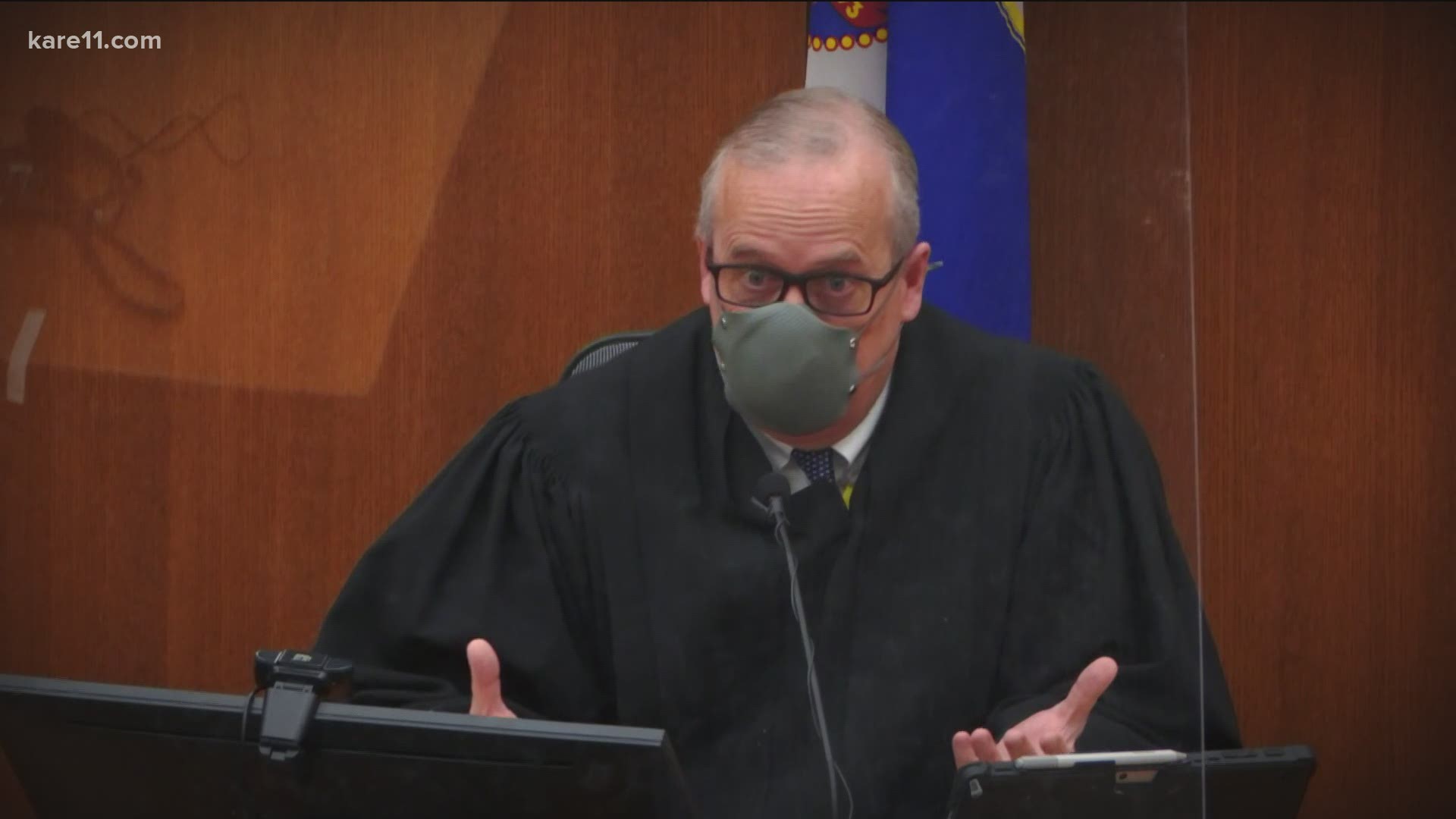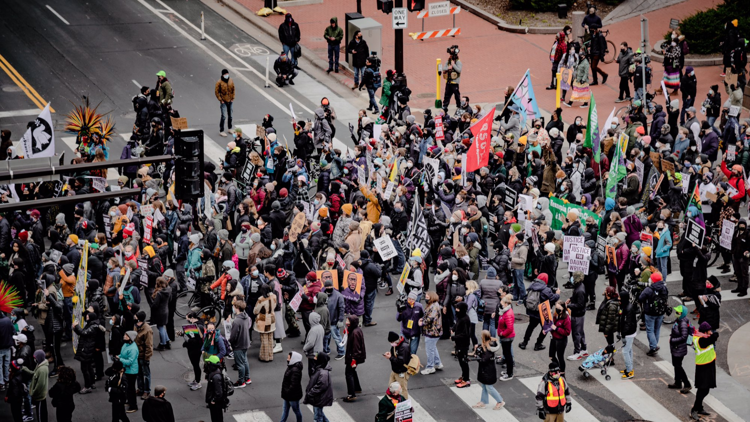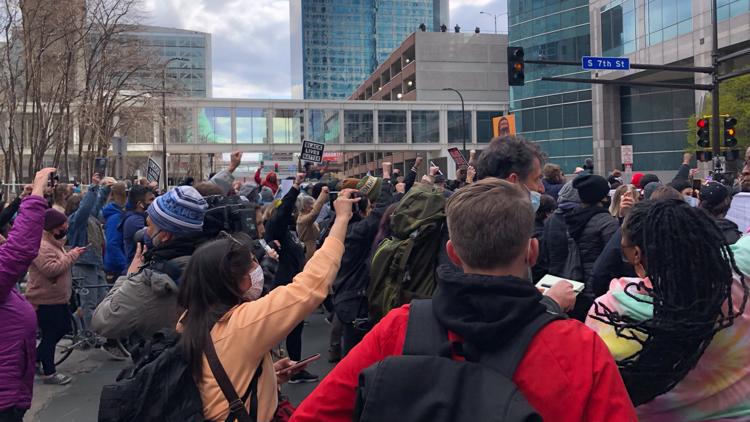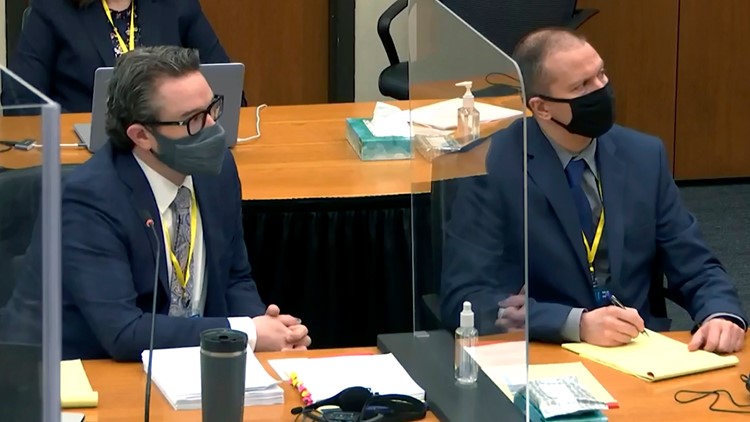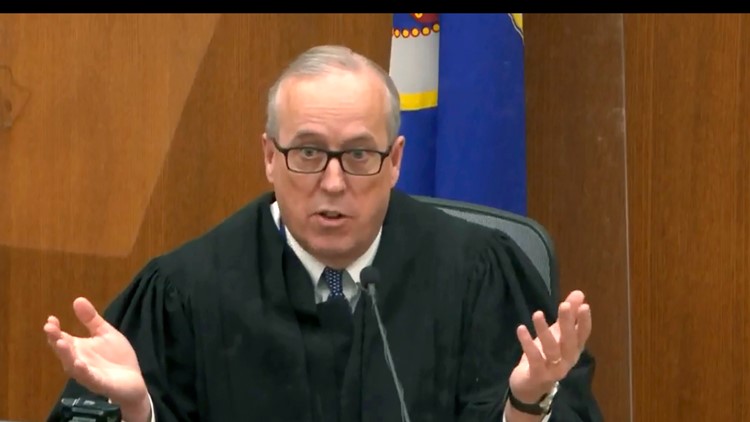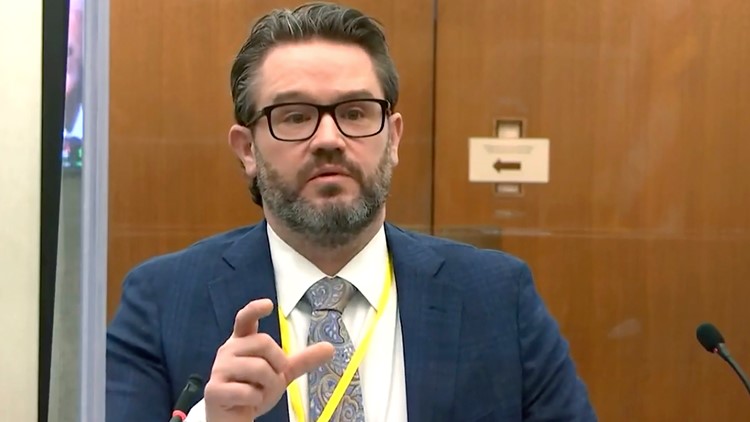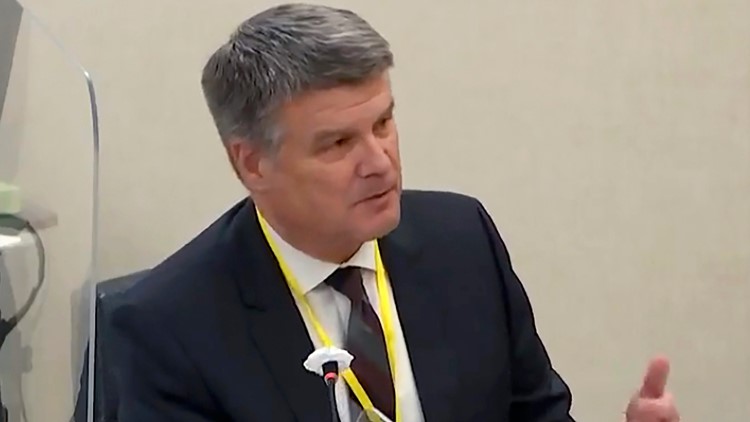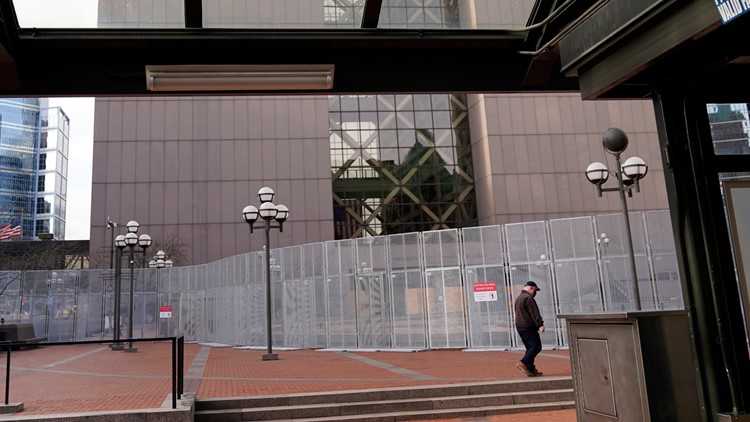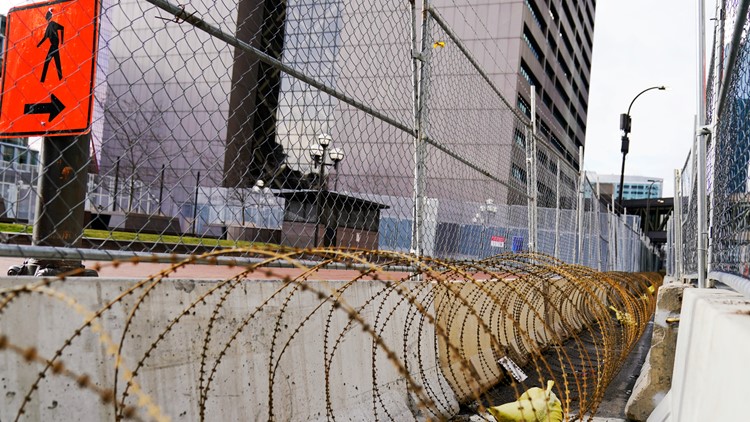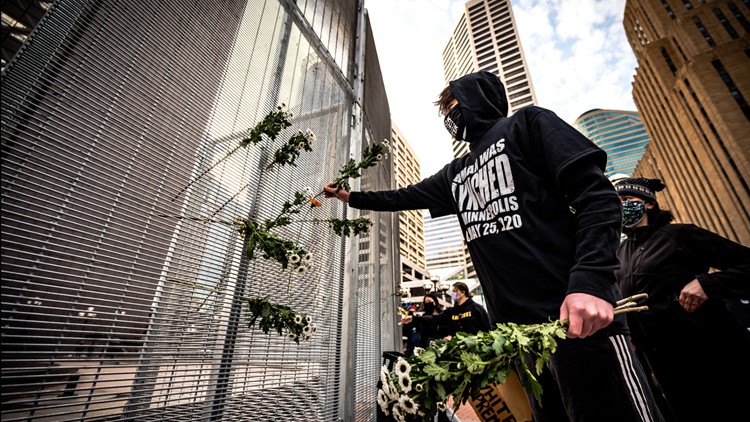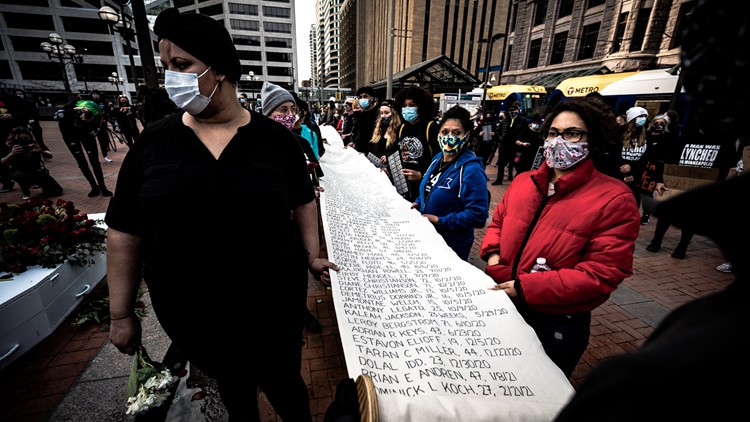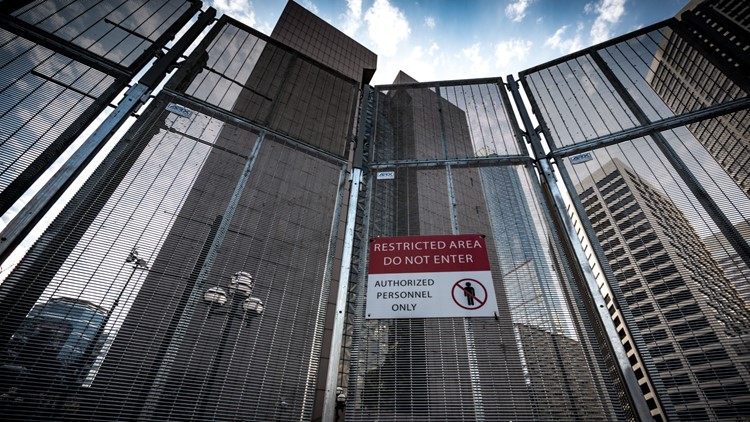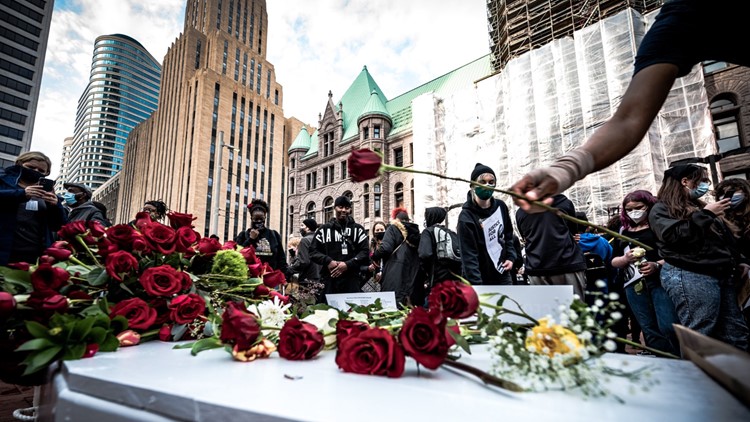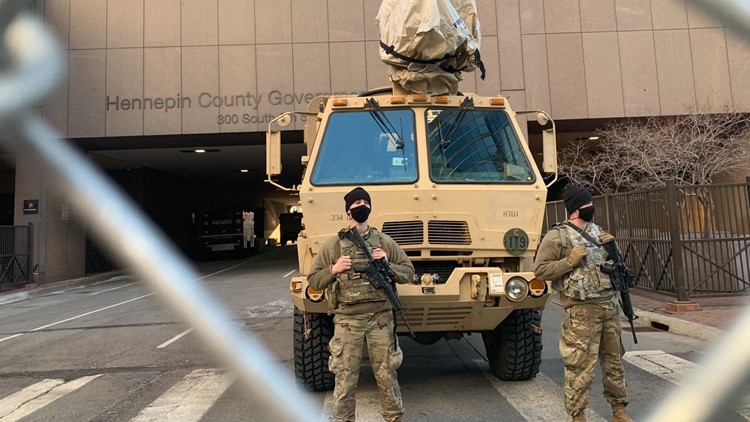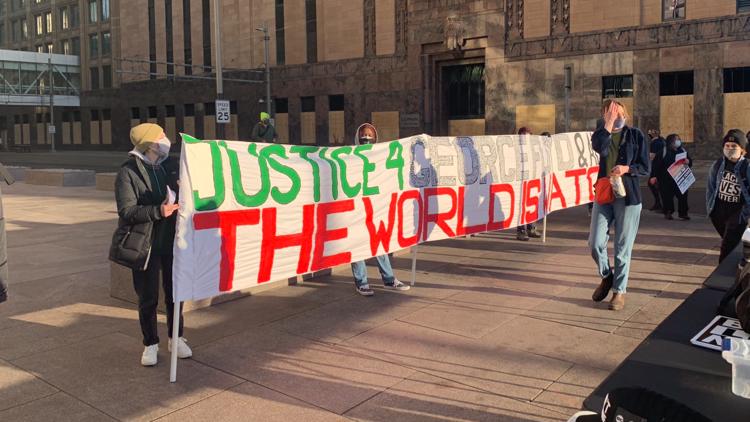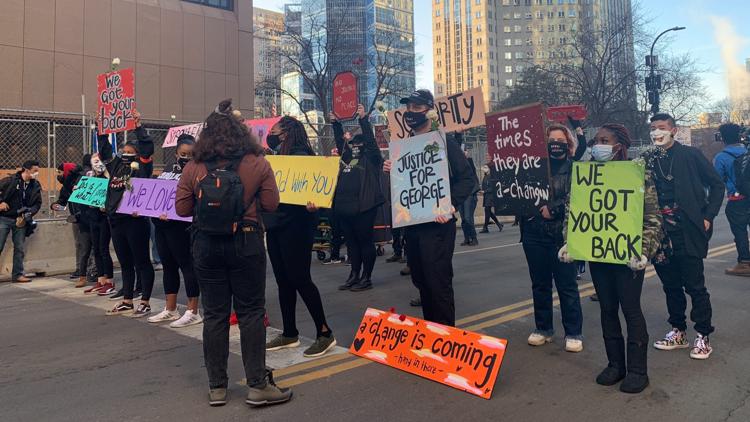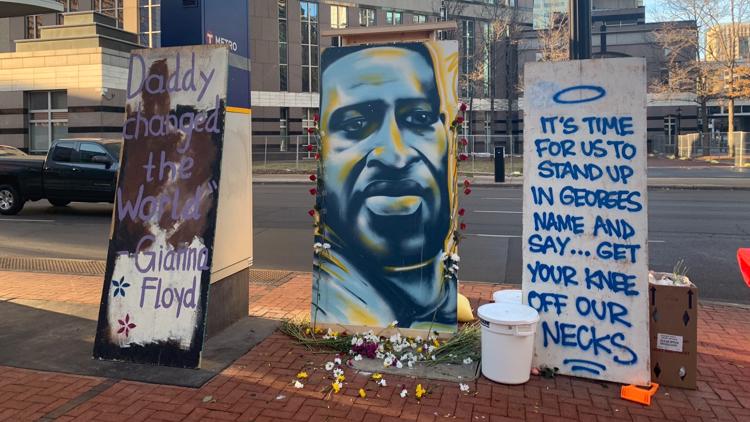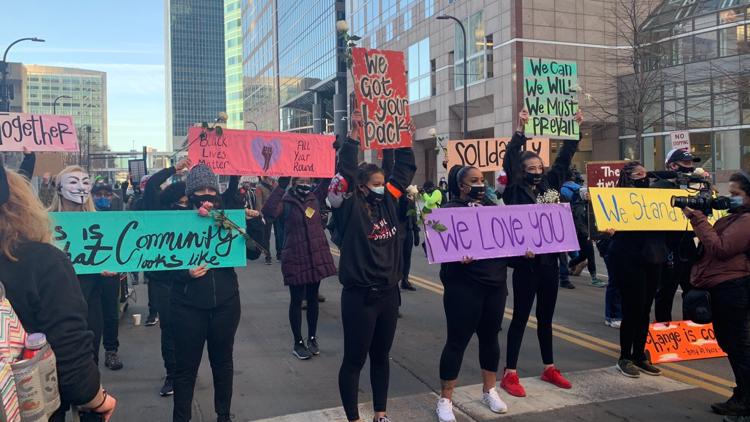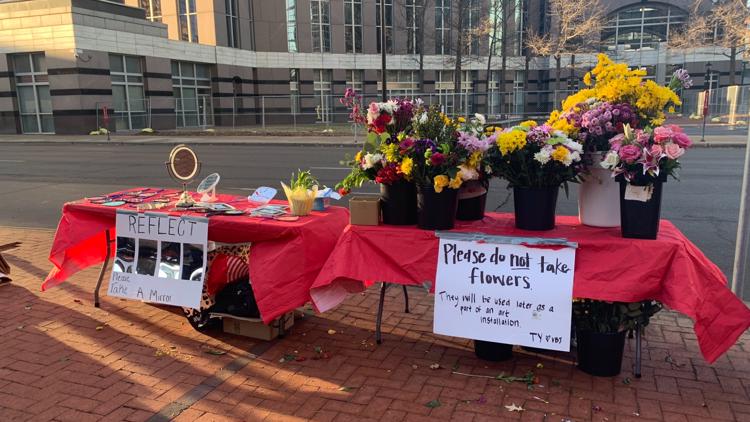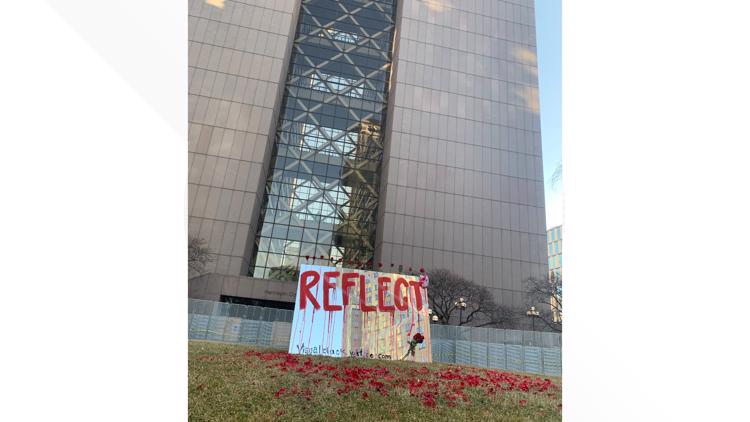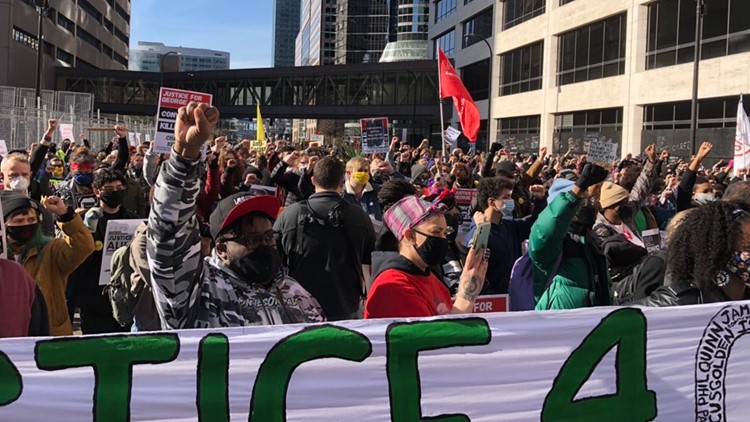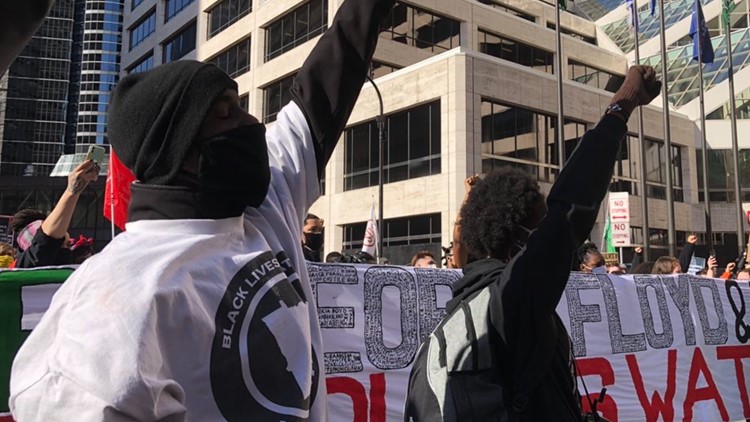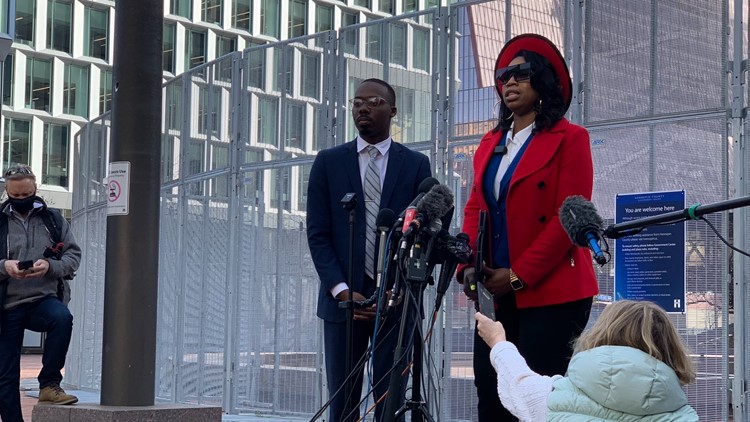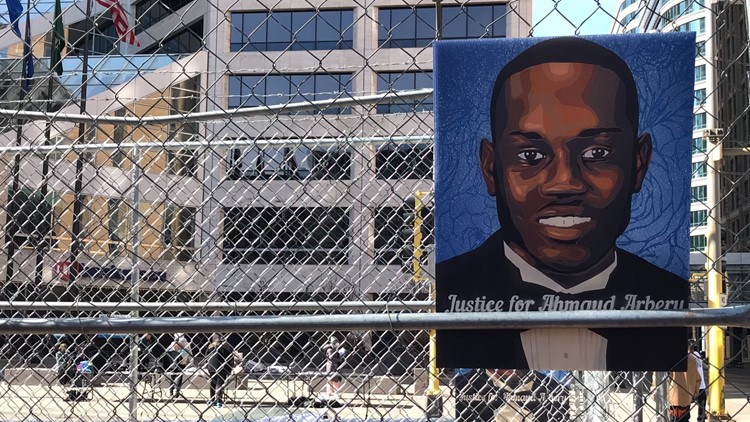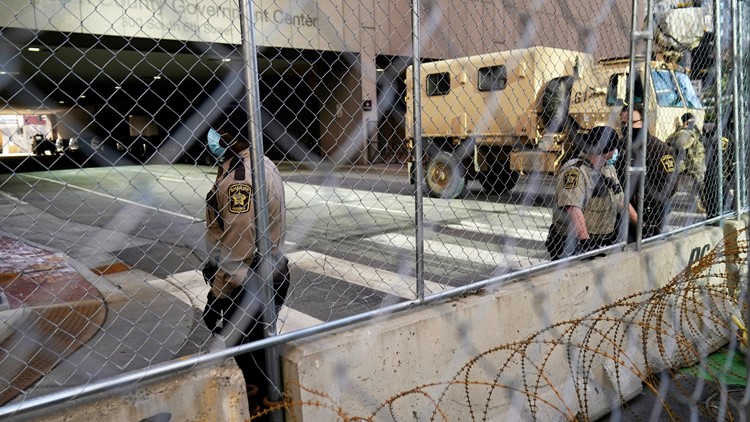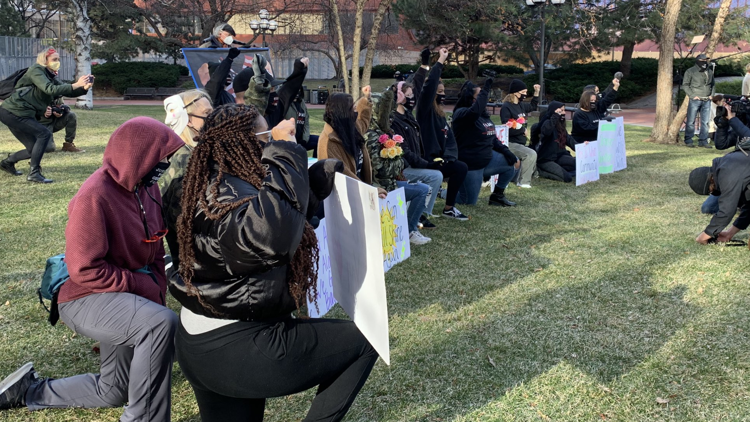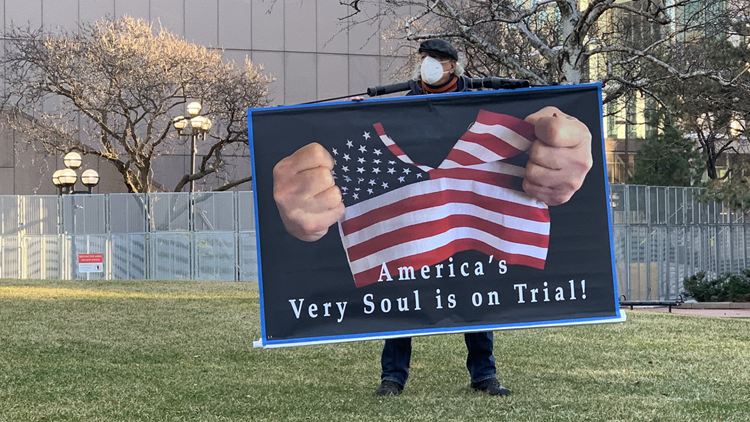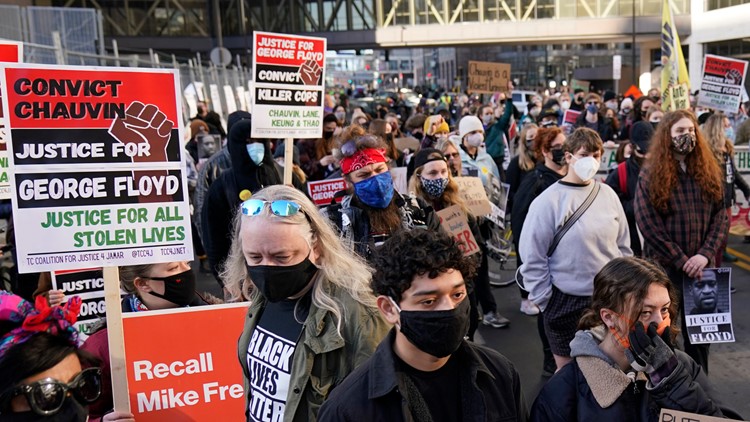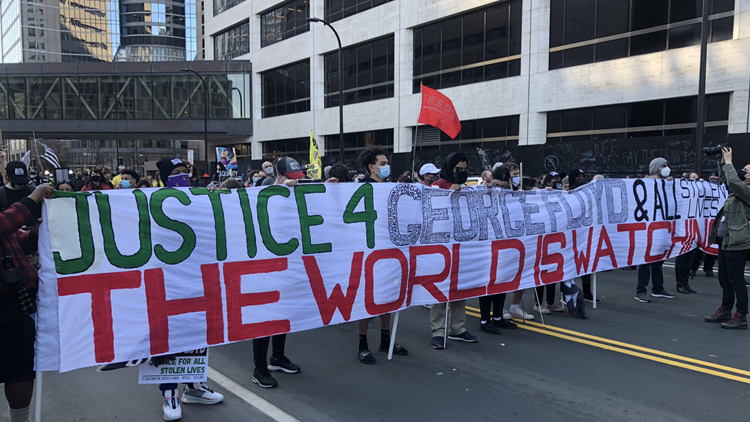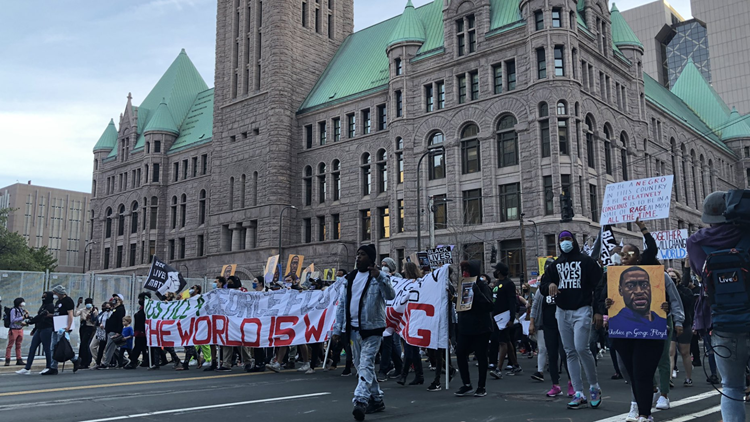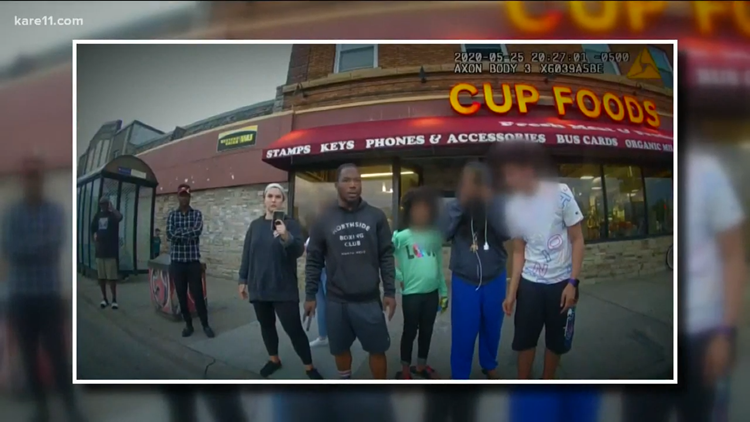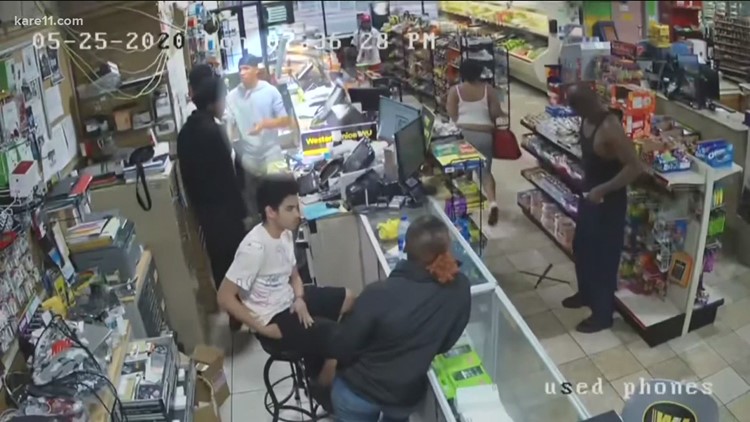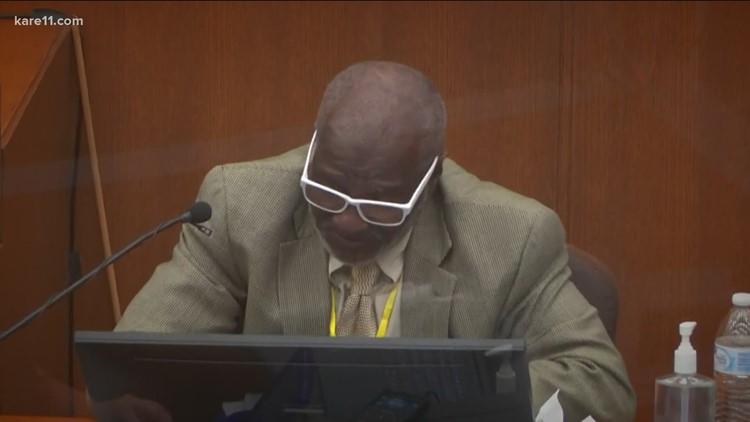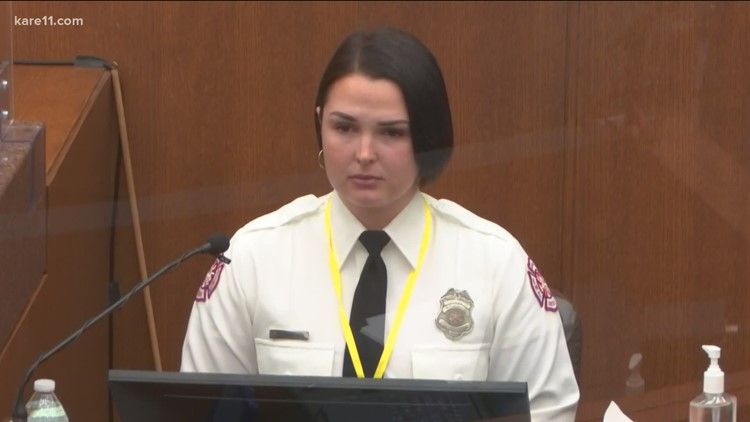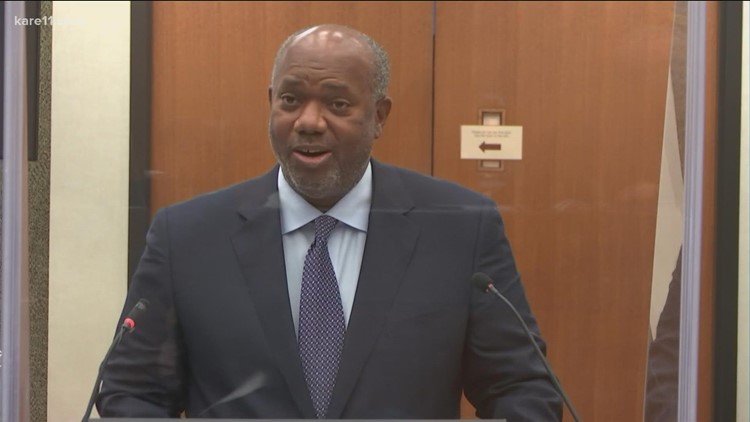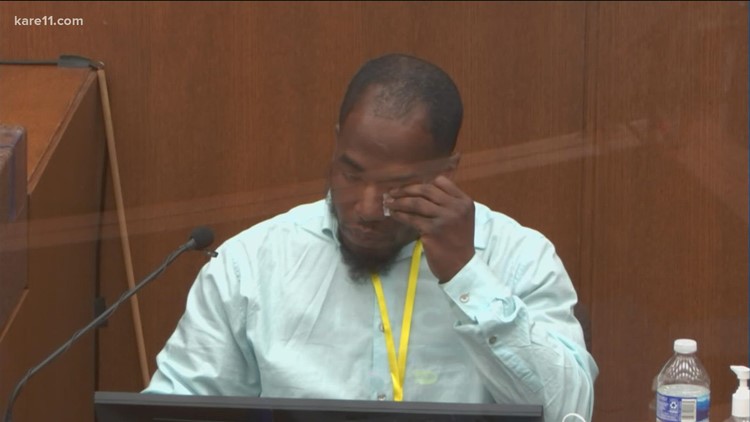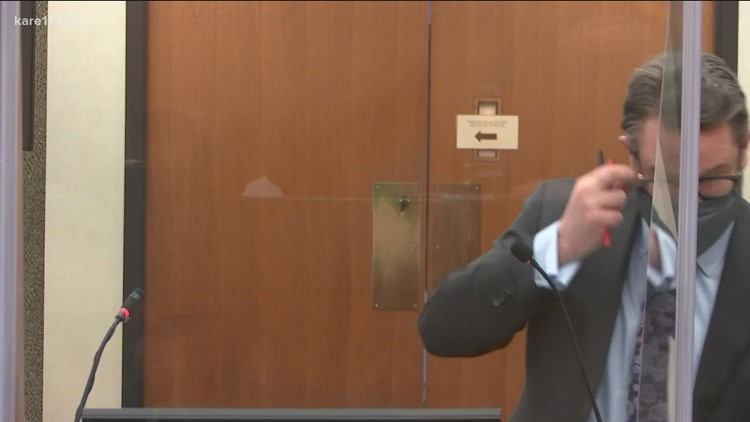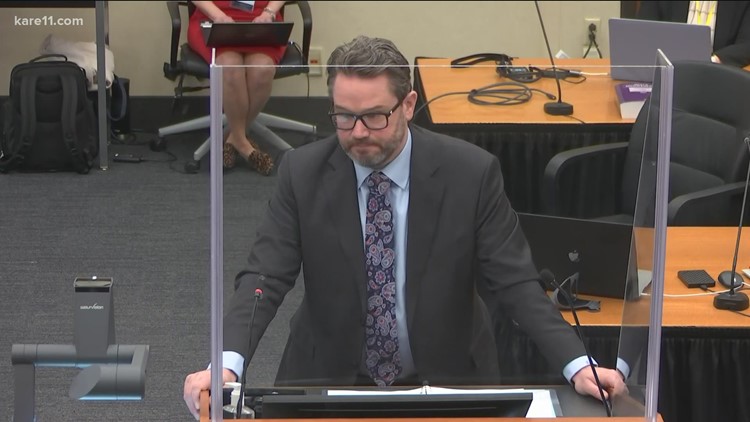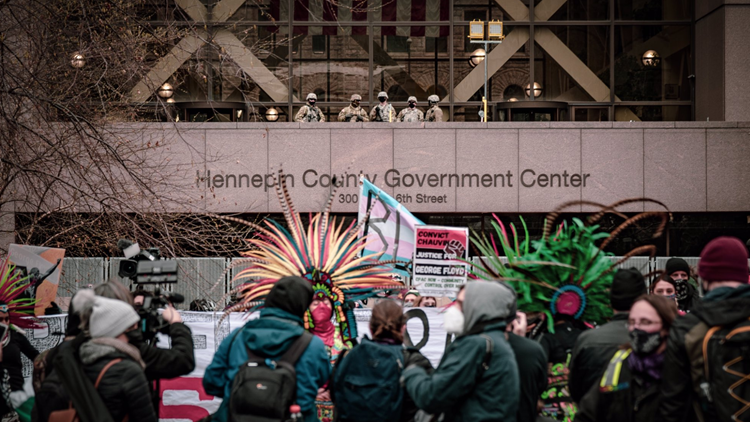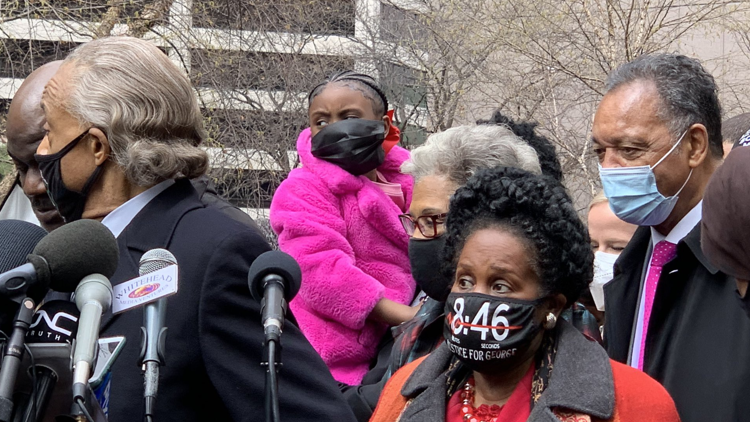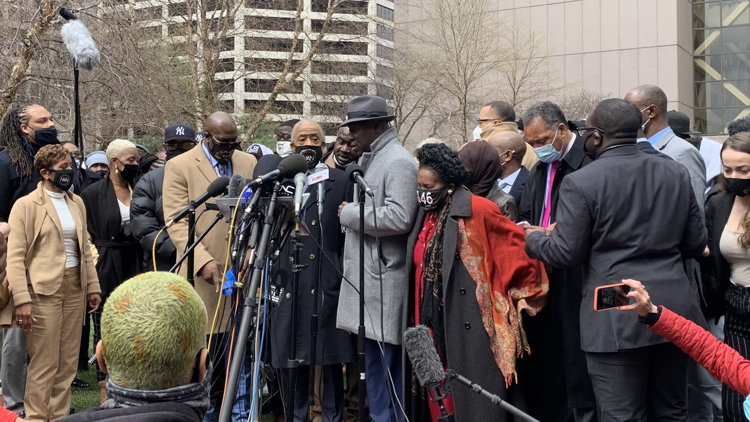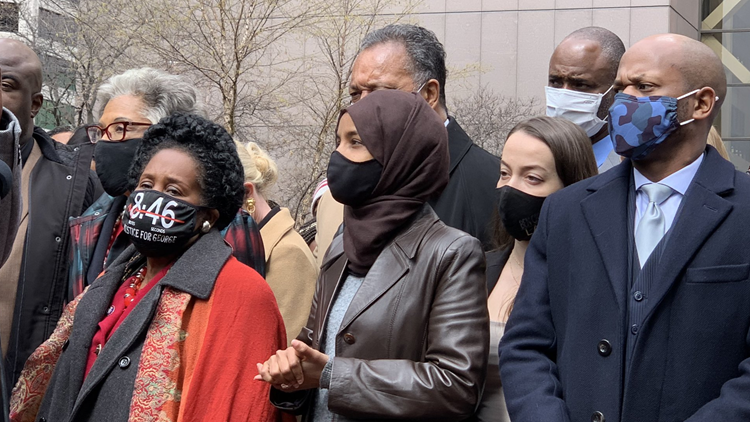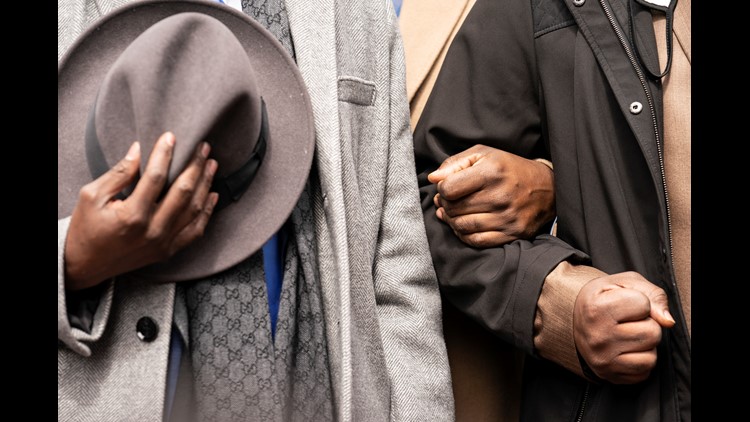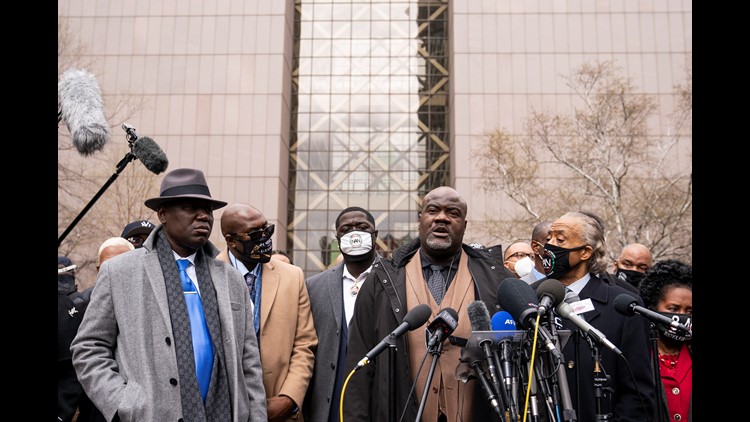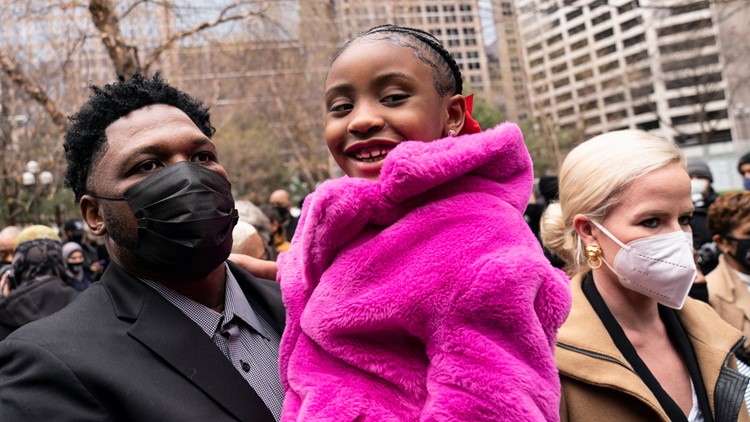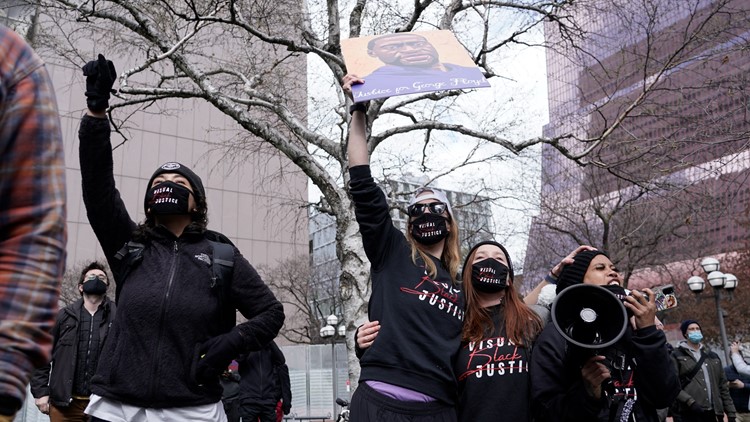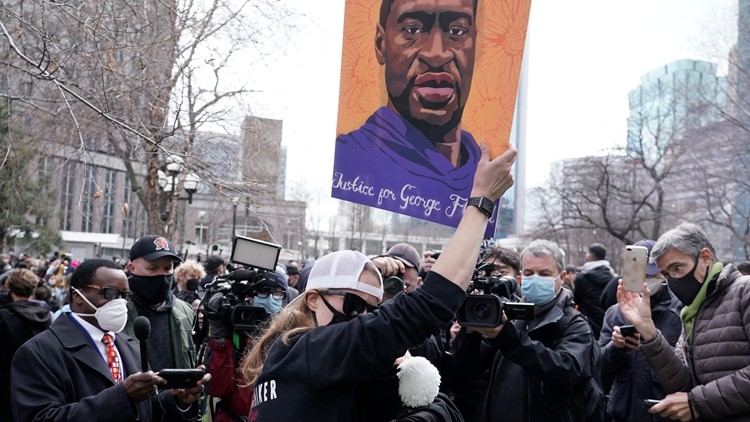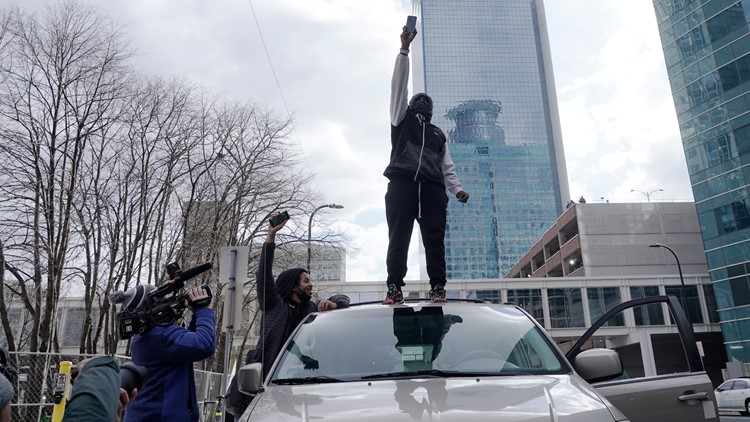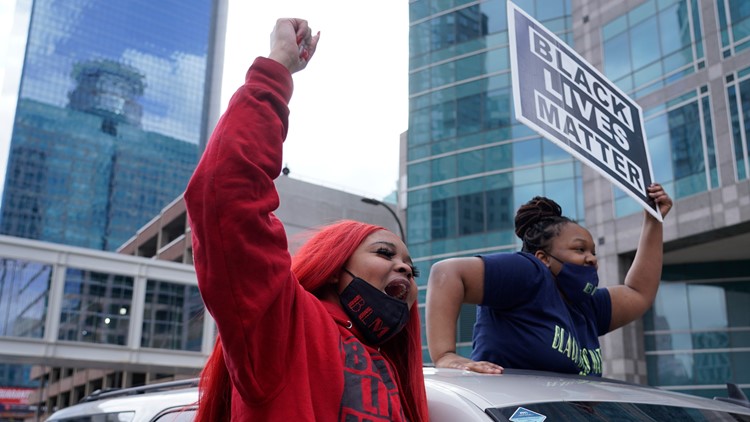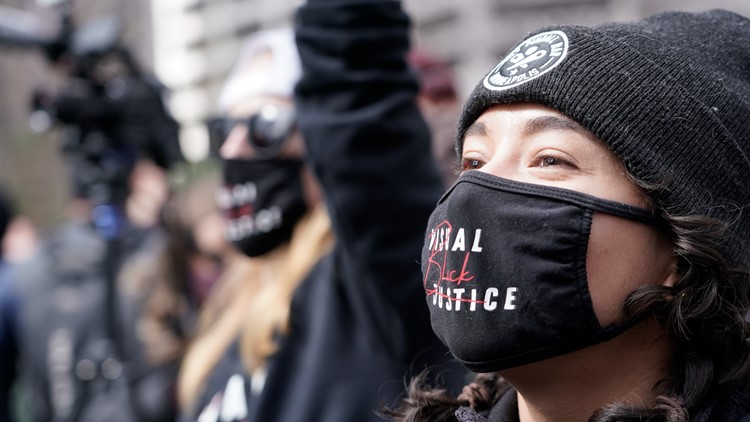MINNEAPOLIS — Tuesday, March 16
- 7 seated jurors will be questioned Wednesday morning via Zoom on exposure to story about $27 million settlement between city, Floyd family
- Judge takes request for 'continuance' under advisement amid concern that news of civil settlement could taint jury pool
- No new jurors seated on Tuesday
- Nine jurors have been seated, five additional jurors still need to be seated
- Five are white, four are people of color; three are women
- Judge to rule Thursday morning on whether to allow evidence of Floyd's 2019 arrest
Judge Peter Cahill could provide rulings Wednesday morning in regard to delaying the trial of Derek Chauvin or moving the trial out of Hennepin County following last week's civil settlement announcement.
On March 12, the Minneapolis City Council publicly approved the largest police settlement in Minneapolis history, paying $27 million to the family of George Floyd. On Monday Chauvin's defense attorney told Judge Peter Cahill he is "gravely concerned" about the potential of that news to prejudice the jurors already seated, and the ones still needed for the trial.
The judge did deny the defense's requests for more juror strikes and jury sequestration.
Cahill said he is still considering requests from defense attorney Eric Nelson to delay the trial, and move it to another venue. However, the judge did deny a defense request to sequester the jury during the trial.
On Tuesday afternoon, prosecutor Steve Schleicher said the fear of the jury pool being influenced by the settlement is overblown and added that they have 329 prospective jurors identified in the case.
Judge Cahill said, while he's concerned about the settlement announcement, he believes a report in the New York Times published last month about a potential plea bargain could be even more problematic.
"That is particularly problematic, and I said so, because of its impact on the presumption of innocence," said Judge Cahill about the report. "The $27 million settlement is unfortunate, it is something to consider, but let's face it, it's not just a legal decision, that's a political decision, and I think people realize that."
Prior to recessing for the day, Judge Cahill said he plans to have a ruling Thursday morning on whether to allow evidence from a 2019 arrest of George Floyd.
12 p.m.
It was a busy morning in the process of selecting a jury in the trial of Derek Chauvin. Five jurors were questioned and all five dismissed for various reasons.
Juror #69 was the last person questioned before lunch recess. He was dismissed after Chauvin's defense attorney used his 11th strike, leaving him with four. During questioning, KARE 11's Lou Raguse says Nelson grew increasingly frustrated with the candidate, who wrote on his jury questionnaire that he has a negative view of Chauvin and believes Floyd was "murdered." The man insisted he takes jury service seriously and could put all that aside.
Juror #67, described by a pool reporter as a white man in his 30s, was excused after being extensively questioned about his history with police. The man is an executive director of a youth organization, and says it would be an honor to serve as a juror. He told the courtroom his parents had a volatile relationship when he was young, and he personally called police for help in defusing a troubled situation. The juror also described having a positive impression of Black Lives Matter, and a not-so-positive take on the Blue Lives Matter movement.
Juror #66, described as a white female in her 20s or 30s, was excused for hardship, as she is preparing to move and has a young child. She told the court a co-worker is married to a Minneapolis Park Police officer, doesn't think she could be impartial, and does not want to be part of Chauvin's trial.
Judge Peter Cahill dismissed juror #64 for cause. Cahill said the man, a white man in his 20s or 30s, knows about the $27 million settlement between the city of Minneapolis and the family of George Floyd and would likely continue to see headlines about the case daily in the runup to the trial due to his job. Juror #64 works for a software company that is developing new products for a major media company, and says articles on the Chauvin case "pop up every single time."
Minutes earlier the judge excused juror #63 because of hardship. The juror, a white woman in her 20s, told the court she is a recent college graduate. She just secured a job as a long-term substitute teacher, and had concerns about the ability of the school/district where she works to replace her during the pandemic.
9:15 a.m.
After an hour of pretrial motions in the Derek Chauvin trial Tuesday morning, jury selection resumed.
Nine jurors have been seated since selection began a week ago. The judge, defense and prosecution need to find five more people to fill out the panel of 12 jurors and two alternates.
8 a.m.
During pretrial motions Tuesday morning, the judge heard new arguments in a matter he already ruled on earlier in the proceedings.
He previously granted the state's motion to suppress evidence of another arrest of George Floyd on May 6, 2019. The defense wanted to use this arrest to argue to the jury that Floyd's modus operandi (MO) when arrested was to put drugs in his mouth to avoid getting caught.
The judge ruled that it isn't relevant. He explained his reasoning again on Tuesday.
"These are different police officers," Cahill said. "The police who deal with him … have to deal with him as he presents himself."
Cahill said that whether Floyd had an MO doesn't matter. "The intent that is relevant here is Mr. Chauvin and he essentially has to deal with Mr. Floyd as-is."
However, defense attorney Eric Nelson is asking the judge to reconsider because of drugs found in the squad car where Floyd was briefly placed before his death. Nelson said the defense searched the car in January 2021 and found the drugs.
Judge Cahill said it was "mind-boggling" that a more extensive search was not done before that. Nelson said that a search was done in May 2020 and photographs were taken at that point. Those photographs prompted the defense to search the vehicle again.
Nelson said that paramedics told Floyd his blood pressure was so high in that 2019 arrest that he was in danger of having a stroke or a heart attack.
"The entire arrest in May of 2019 ... is remarkably similar in multiple ways from one to the next," Nelson said.
He said in that arrest, like the 2020 one, officers struggled to get Floyd in the car, he told them he's been shot before, "and he starts saying some of the exact same things that he says in this case" including calling for his mother, "and he begins this crying, sort of erratic behavior."
Nelson said there are other similarities between the arrests, including officers suspecting Floyd is under the influence. The primary difference, Nelson said, is that Floyd never made a claim of claustrophobia in 2019, and he got into the squad car.
Nelson said Floyd's car, where he was sitting when he was approached by police in 2020, was searched after his death. Images from the search showed what appeared to be pills, causing the state to do a second search. They tested the pills at the BCA and found that they were a methamphetamine and fentanyl mixture.
He said white residue could be seen in images of the squad car, as well, so the defense requested to inspect it. "What I saw was immediately apparent that what was on the backseat of this squad car was chewed-up drugs," he said. Nelson said a "near-complete tablet" was found on the floor of the squad. After this, the state did another search and tested these items, Nelson said. He said that Floyd's DNA was found on the drugs, which were methamphetamine with potential traces of fentanyl.
"What caused Mr. Floyd's death is a principal issue," Nelson said. "Couple that with a specific statement from a paramedic telling him ... 'You're about to die from a heart attack or a stroke,' and then ultimate hospitalization of Mr. Floyd."
The judge said he believed that paramedic statement may be new evidence, because it speaks to "What is Mr. Floyd's medical or bodily response to a large amount of drugs being ingested shortly before?"
However, he said Floyd's emotional response to arrest does not seem as relevant.
Prosecutor Matthew Frank argued the state's side Tuesday morning, saying that "repeated conduct" is needed to establish a habit that is admissible in court.
The rule the judge needs to consider when making a decision is Minnesota Court Rule 404(b), governing rules of evidence in court. That rule states that evidence of another crime or act can't be used to prove someone's character. "It may, however, be admissible for other purposes, such as proof of motive, opportunity, intent, preparation, plan, knowledge, identity, or absence of mistake or accident."
Frank said he believes the defense is "desperate" to smear Floyd's reputation by making his opiate addiction look like evidence of "bad character."
In the 2019 arrest, Frank pointed out that officers got Floyd medical attention and he survived. "I don't understand how those two things are similar," he said.
"If the fact that they're offering it to prove is that he ingested a controlled substance," Frank said, "fine." But he argued that the searches of the two vehicles already show proof of that, and this previous arrest does not need to be admitted to show that. He said the 2019 arrest is "prejudicial" and could be used for other purposes if admitted.
"It's prejudicial because it persuades by illegitimate means," Frank said.
In terms of why the drugs were not seized immediately from the cars, Frank said that images are taken for this precise purpose. He said they are a way to "freeze" the scene and go back later to gather more evidence.
"The issues in this case are the objective reasonableness of the officers' conduct in the way they treated Mr. Floyd," Frank said. "Their duties as police officers, their conduct, can't take into account what happened in May of 2019."
The judge said his understanding is that the defense is offering this as evidence regarding cause of death.
"He ingested drugs on May 6, 2019, which led almost immediately to a hypertensive emergency," Cahill said. "So now on May 25, 2020, if he ingests drugs with that hypertension condition, could that have caused the death?"
Frank said the proof that would be offered with the previous arrest "is far outweighed by the prejudicial nature."
"I'm gonna take it under advisement until tomorrow at the very least," Cahill said when they ran out of time in the motions hearing. Just before recessing for the day, Judge Cahill said he plans to have a ruling on Thursday morning.
Meanwhile, the judge has not yet ruled on a defense request for a continuance of the trial due to developments in the civil case.
Defense attorney Eric Nelson said Monday in a pretrial hearing that the news of the Floyd family civil settlement has "very suspicious timing to say the least, and has an incredible propensity to taint a jury pool."
Nelson asked for a continuance of the trial, among other requests.
The judge allowed the prosecution to respond to Nelson on this matter, and prosecutor Steve Schleicher argued that the jury pool has already been exposed to other news about the case, and that they are selecting only people who can set that aside.
Judge Cahill said the defense and even the prosecution should have a legitimate concern about the impact, and said there's been other "prejudicial" pretrial publicity aside from this. He acknowledged that the city's timing was "unfortunate," but also said he doesn't sense any "evil intent."
The judge said he will move forward for now, but he's taking the motion for a continuance under advisement. He denied the defense's request for extra peremptory strikes - that they could use to dismiss more jurors without cause. And he said eventually he will call back the seven jurors who were seated before the settlement, to ask them what they know and if they can set it aside.
The judge said that opening arguments will not start until March 29, even if all the jurors are selected before that.

